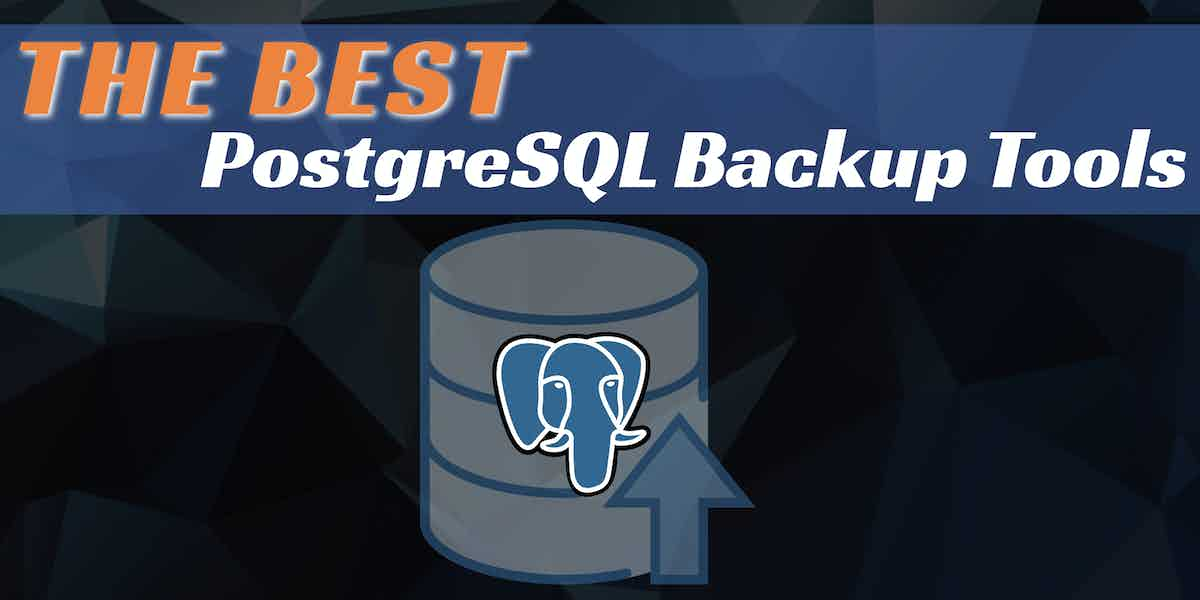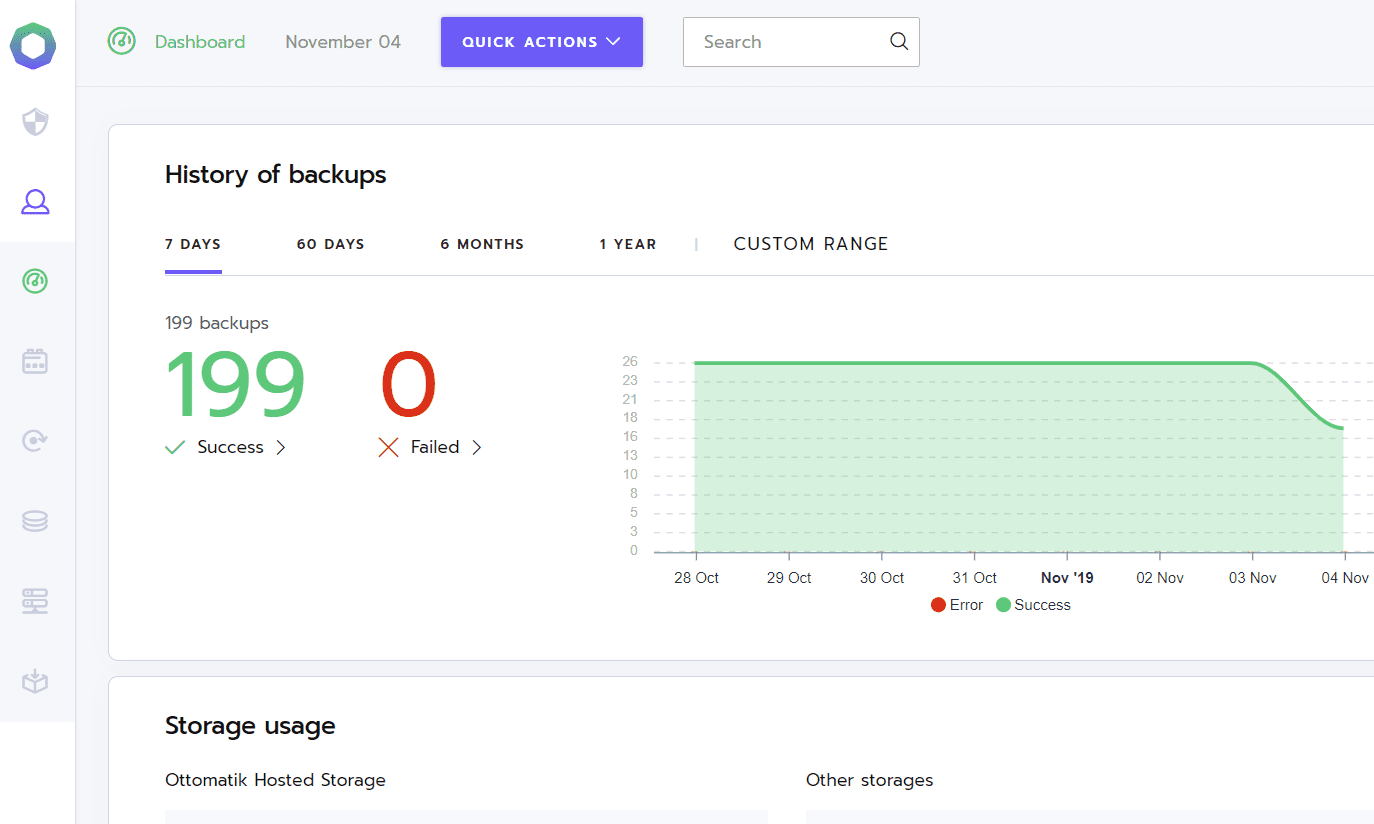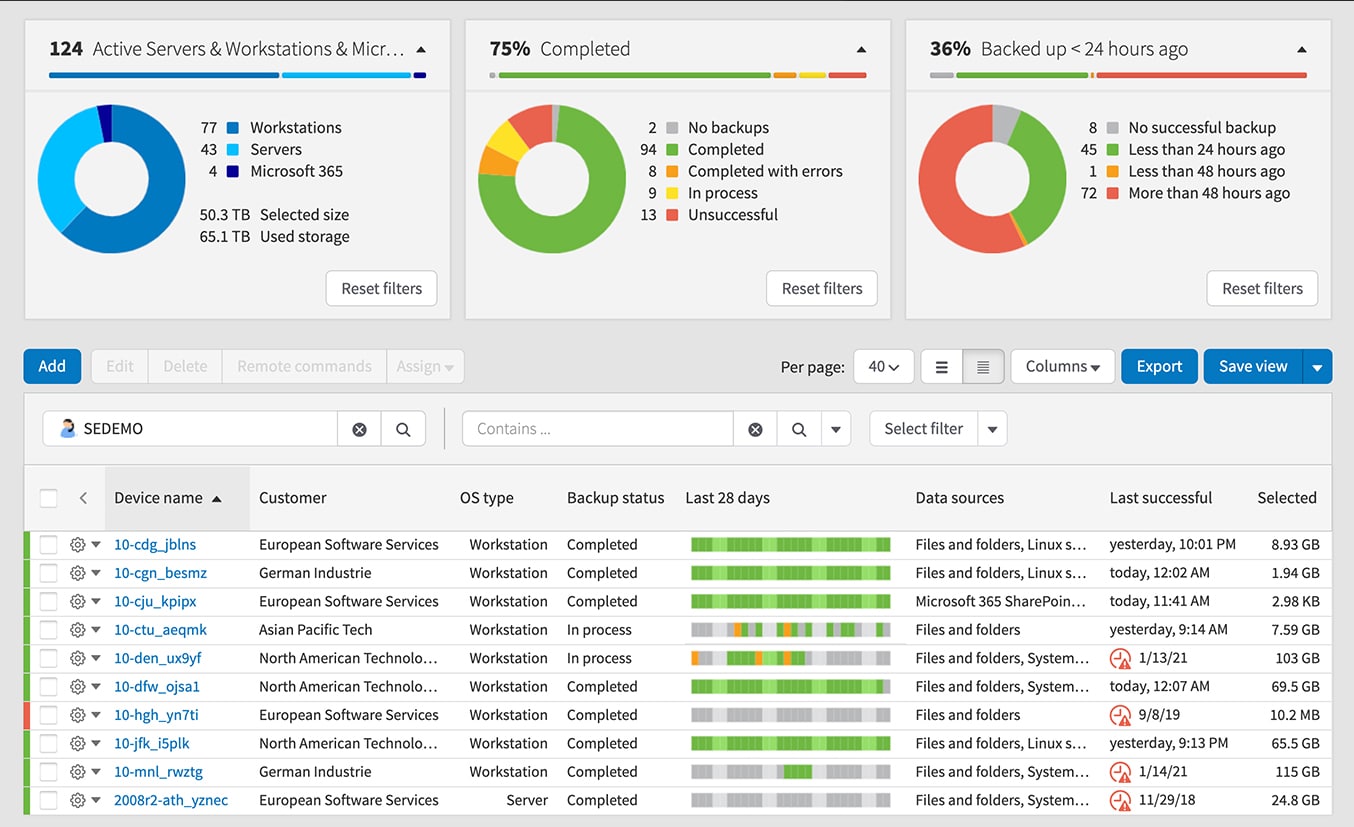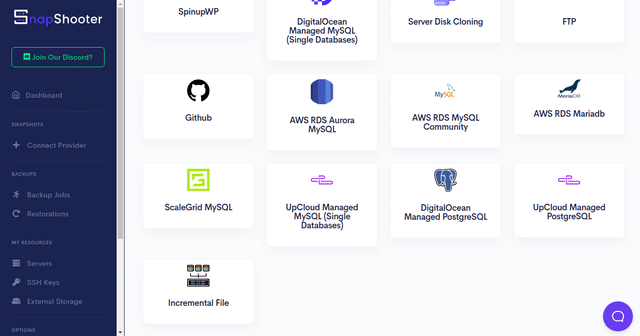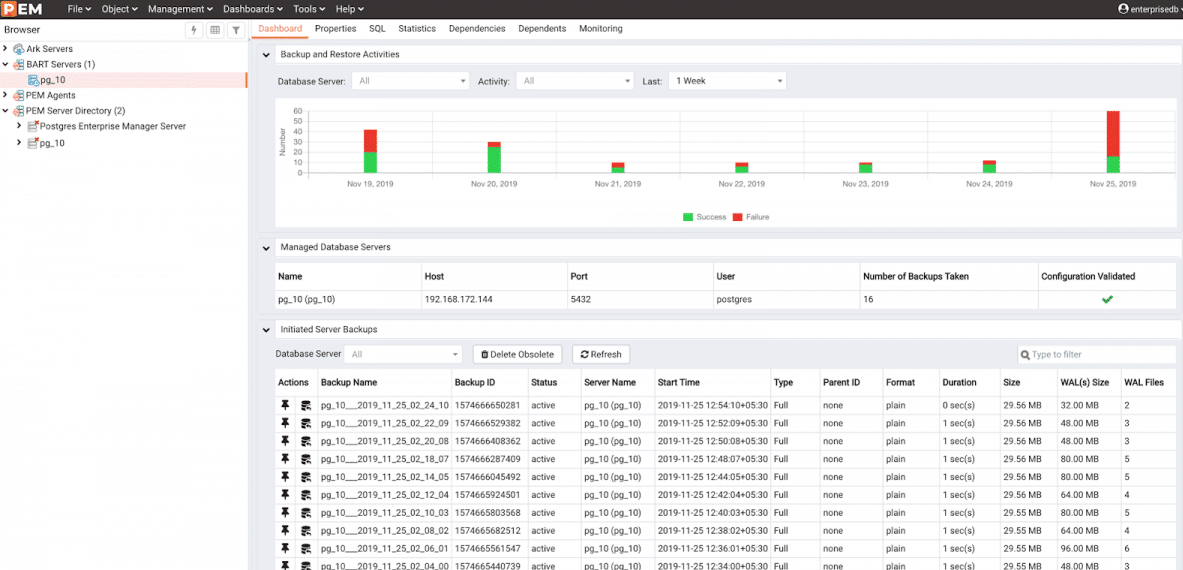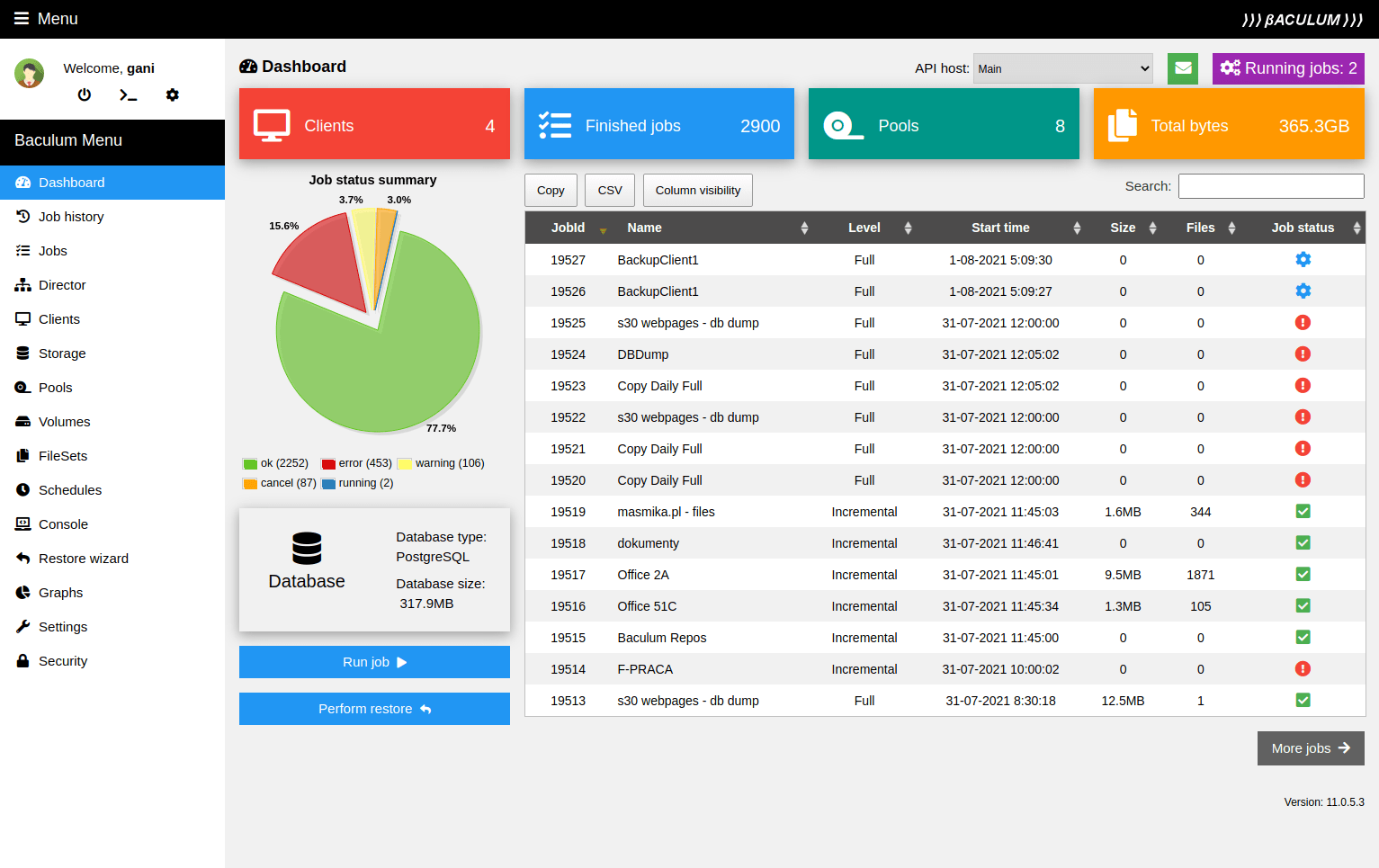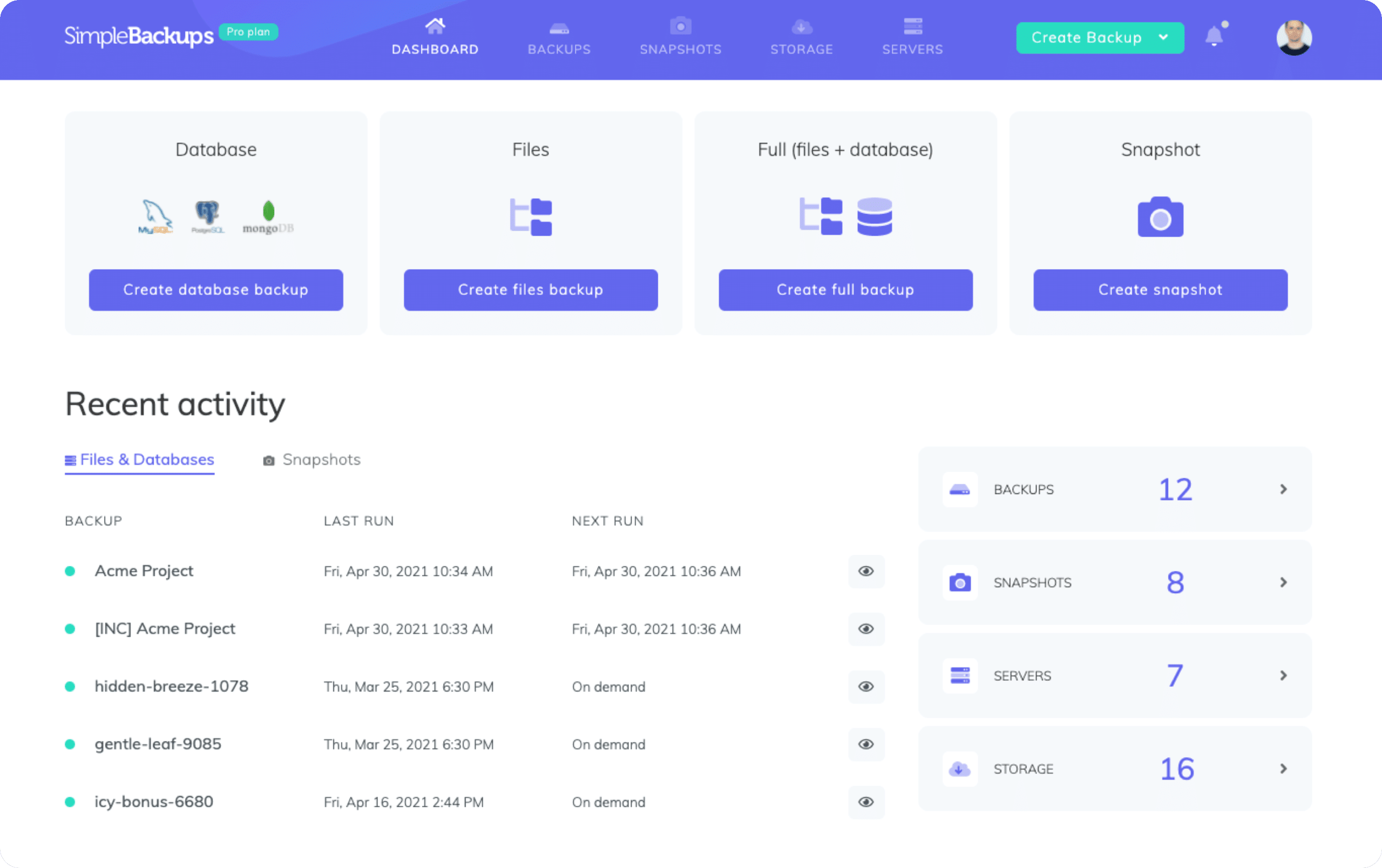PostgreSQL is a highly stable, open-source relational database that helps decipher complex queries using JSON and SQL command language. The companies trust the relational database management system over the others due to its excellent features and robust performance.
It is also backed by 20+ years of development by an open-source community and helps solve complex analytical processes and manage dynamic web applications.
It is one of the easy-to-use databases that support multiple authentications and programming languages. Netflix, The Guardian, and Zendesk are a few high-profile companies that use the PostgreSQL database for their operations. It also provides essential services to some popular platforms like Instagram, Skype, and Disqus.
There are many benefits of using the PostgreSQL database, which raises the need for installing backup tools for better security and loss prevention. As most companies rely on PostgreSQL databases for operations and deciphering complex queries, it is a must to have a tool that will save the data and protect it from bigger losses and damages.
Here we have shortlisted some of the top PostgreSQL Backup Tools that will help track and control all your backups in the PostgreSQL database. Further, we have listed their key features to make it easier for you to compare and select the one that suits your need and budget.
Methodology for selecting the Best PostgreSQL Backup Tools
PostgreSQL is a popular open-source database used by businesses, developers, and even system administrators for storing and managing data. In order to protect your data from unexpected losses and uncertain events, it is important to have a reliable backup tool in place. Here are a few methodologies that one must consider when selecting PostgreSQL backup tools:
- Check if it fulfills your backup requirements and offers retention period
- Check if it is compatible with the PostgreSQL version and operating systems
- Make sure to check if you can include database backups in a full server backup
- Are on-premises or SaaS packages available?
- Check if it supports full and incremental backups as well as disaster recovery
- Make sure to cross-check the security features, such as authentication, access control, or encryption
- Does it offer proper support and documentation?
- Can you create local as well as remote backups through the selected tool?
What is the PostgreSQL backup tool?
PostgreSQL backup tools are beneficial for all businesses that use PostgreSQL and do not wish to suffer heavy losses. These are automated tools that ease the burden of DBA or administrators and save time. All they require is to monitor if the backups are occurring as per the selected frequency or not.
With the help of these backup tools, administrators can focus on other operational areas and improve performance. They will need to pay attention to the backup tool only when a disaster occurs, or when they require to perform restoring tasks.
There are three types of backup methods – full backup, incremental backup, and differential backup. Under the full backup, all the database content is copied and stored. This method is generally used by companies with smaller databases.
An incremental backup begins after the full backup, where it copies and extracts records that occurred after the last backup. Lastly, the differential backup maintains the copy of changes that happened after the previous full backup.
By creating a backup, businesses reduce the risk of losing data. Implement these strategies and methods to create a backup for your small or large databases.
Why should you back up your PostgreSQL database?
Most well-known companies use PostgreSQL for their business operations. At current, no company would want to risk its data and lose it all due to a minor mistake. Thus, having a backup will save you from major losses.
Also, PostgreSQL procedures are easy to use, i.e., hackers can easily work out a way and try to steal sensitive data. Thus, any company or web application that is not security conscious is prone to attacks.
Damage to a database can leak all your customer data and devastate your business. Losing such crucial records is something that no company can afford. Thus, to prevent your business from huge losses and protect a PostgreSQL database, one must set up backup tools.
The Best PostgreSQL Backup Tools
Today, some of the top brands and companies are using PostgreSQL to decipher complex queries. To save their businesses from heavy losses in the future, we have come up with a list of top PostgreSQL Backup Tools that will improve your business performance and offer full data protection.
1. Ottomatik
Ottomatik is a cloud-based service that supports backup and recovery solutions. It uses a point-and-click feature to help restore all the lost information or data.
The automated database backup solution offers 24/7 data protection with cloud Storage options.
Key Features
- Allows creating a backup for PostgreSQL databases, MySQL and MongoDB
- Supports a full backup method and transfers data to cloud storage
- Supports creating backup databases on-premises and cloud platforms
- Managed by cloud-based console
- Offers 24/7 Database Protection with cloud storage
- Supports File and Directory Backup services
- Public Key Authentication support
- Compliance and security measures
- Supports encryption and offers data transmission security
- The backup tool is compatible with Google Drive, Amazon S3, Backblaze, Dropbox, etc.
- Used for replication and migration
- Not restricted to one cloud storage
- Requires no hardcore technical knowledge and continuous monitoring
- Sensible defaults save configuration time
- Automated and compression-enabled backups
- Automatic installation of SSH Key, software dependencies, SSH port, and home directory
- Quick disaster recovery
- Runs backups automatically at regular intervals
Why do we recommend it?
The 24/7 data protection combined with cloud storage options makes Ottomatik a solid choice for businesses that seek continuous data safety. The flexibility in terms of supported databases, integration with multiple cloud storage providers, and ease of setup and operation make it particularly attractive.
In the case of Ottomatik, you do not require to perform server configurations manually as the installation script covers it all. It can back up PostgreSQL databases as well as MySQL and MongoDB. It also supports backup creation for databases on-premises and cloud platforms, including Google Cloud Platform, Amazon Web Services (AWS), and Azure.
Managed from a cloud-based console, Ottomatik is one of the easy-to-use backup tools that extract data and creates a secure data transfer connection with the storage space. All the file movement and recovery solution is protected by encryption.
Once you move all data to a safer place with Ottomatik, admins can also create additional copies and offer better response times. Further, it can be used for migration and replication.
Other features that make it a great choice are it offers database insurance, supports SSH keys, accidental bad database queries, Public Key Authentication, and more.
Who is it recommended for?
Ottomatik is ideal for database administrators, IT teams, and businesses who wish to have an easy-to-use solution that offers security and efficiency without technical overhead.
Pros:
- Specializes in creating a backup for PostgreSQL databases as well as the ones controlled by MySQL and MongoDB.
- Encrypts all file transfers and maintains security at all times
- Does not require in-depth technical expertise and constant monitoring
- Not restricted to a single cloud storage option
- Allows backup creation for databases on-premises and cloud platforms
Cons:
- Ottomatik does not offer an agent for Windows
- No other cons found
Website Link: https://ottomatik.io/postgresql-backup-restore/
2. N-able Cove Data Protection
Are you looking for a tool that creates PostgreSQL Backup more frequently? Invest in N-able Cove Data Protection, a popular cloud backup service provider with private cloud storage features. N-able Cove Data Protection is best suitable for managed service providers and compatible with Windows, Mac, Linux, and SaaS applications.
Key Features
- Designed for managed service providers
- Suitable for replication and migration
- Supports file-level and block-level backup features
- Offers secure storage space
- Offers protection with 256-bit AES encryption
- Reduces downtimes
- Unlimited scalability
- Faster Backup and recovery solutions
- Offers automated recovery testing
- Cost-effective solution
- Enables businesses to restore Microsoft 365 data
- N-able Cove Data Protection has a multitenant dashboard
- No storage and bandwidth restrictions
- Allows storing backup off-site
- Allows creation of backup for different service levels
- Saves time on monitoring and troubleshooting
- Only private key users have the authority to access data
- Secures data, files, and folders from threats and attacks
Why do we recommend it?
With its commitment to robust security, N-able Cove Data Protection uses 256-bit AES encryption to safeguard data. Its unlimited scalability and lack of restrictions on storage and bandwidth make it a versatile tool for businesses of varying sizes. The centralized, web-based dashboard facilitates easy monitoring, ensuring administrators can have real-time insights.
With the help of its integrated centralized web-based dashboard, admins can monitor and secure all backup files and folders. Also, you can streamline day-to-day operations and combat threats using N-able Cove Data Protection.
The tool is not specifically designed for PostgreSQL database instances instead, it can be used for replication and migration.
It also supports file-level and block-level backup options and offers secure storage space protected by 256-bit AES encryption.
Another feature of N-able Cove Data Protection is it offers quick recovery features and provides integrations that enable admins to create a backup for Oracle, SQL Server, and MySQL databases. It also supports server backup, file backup, and bare-metal recovery solutions at an affordable pricing plan.
Who is it recommended for?
While this tool is tailored for managed service providers, its features make it relevant for businesses that prioritize data protection, especially those using Windows, Mac, Linux, and various SaaS applications.
Pros:
- Monitor and secure backup files with the integrated centralized web-based dashboard
- Allows streamlining day-to-day operations
- Does not restrict storage and bandwidth
- Uses 256-bit AES encryption to protect storage space and maintain security
- Supports integration and allows creating backup SQL Server, Oracle, and MySQL databases
Cons:
- The recovery option needs to be optimized and improved
- Not a good option for enterprises that prefer using a mix of different databases or operating systems
Website Link: https://www.n-able.com/products/cove-data-protection
3. SnapShooter
SnapShooter is a popular backup solution provider that is easy to use and keeps all the data safe and secure in a specific location. Admin can schedule frequent backups for servers, websites, and databases with the help of this tool. It hardly takes any time to create a backup with SnapShooter.
Key Features
- Secure Data Storage
- Schedules frequent backups for servers and databases
- Allows quick restoring of backup and snapshots
- Allows keeping long backup history
- Admins have full access to data regardless of your location
- Easy to view and manage backups
- Allows storing backups in a different data center
- Fully Automated Application Backup
- Real-Time Logs
- Monitors all resources
- Alerts and Instant email notifications
- Offers Team Support
- Data Compliance
- Multi-File Backup Support
- Unlimited backup retention
- MySQL database backups
- Stores backup in AWS S3 or DigitalOcean Spaces
Why do we recommend it?
SnapShooter’s strong emphasis on flexibility and security makes it an appealing choice for businesses. Its unlimited backup retention means businesses can keep a long and detailed history, offering peace of mind for data recovery. The tool’s real-time logs, alerts, and instant email notifications ensure that administrators are always in the loop, fostering a proactive approach to potential issues.
With the help of SnapShooter, admins can also create daily, hourly, and monthly backups. Further, it allows users to retain old backups as per the need and demand. Another advantage of using SnapShooter is it supports offsite MySQL backup, AWS S3 support, and DigitalOcean spaces that help add an extra layer of protection.
Try the automated PostgreSQL backup service and its excellent restoring features to save your business from heavy losses. Being a digital business, the assets of the company are most valuable, and backup them correctly is an essential process. Thus, invest in a tool like SnapShooter that offers frequent backups and fast recovery solutions.
Who is it recommended for?
Given its functionalities, SnapShooter seems most fitting for businesses where data plays a pivotal role in operations. Its focus on automated backups and quick restoration processes ensures minimal operational downtime.
Pros:
- Allows scheduling backup for servers, websites, as well as databases
- Users can create backups in a few minutes with SnapShooter
- Users can even maintain a backup for files and folders in a different datacenter
- The alert feature instantly updates the administrator by sending email notifications
- Offers unlimited backup retention and secure data storage
Cons:
- SnapShooter offers less storage space
- SnapShooter does not support all devices and platforms
Website Link: https://snapshooter.com/database/postgresql
4. EDB Backup and Recovery
EDB Backup and Recovery software (BART) is another trusted backup tool with a simplified interface that allows continuous creation of backup files and supports point-in-time recovery techniques. With the help of this tool, admins can capture a complete or modified image of a database cluster.
Key Features
- Full base and block-level Incremental backups
- Stores all the backup data in compressed format
- Centralized catalog for backups
- Allows quick restoration of backup data
- Creates backup of multiple Advanced and PostgreSQL database servers
- Supports backup on local or remote hosts
- Retention policy support
- S3 support
- Backups are available in an easy-to-read format
- Simplifies data recovery with simple commands
- Offers Guaranteed physical backups
- Integrates with PostgreSQL architecture
- Requires minimal configuration for backup and restoring data
- Helps resolve bottleneck problems
- Custom scripts are not necessary
- Manages data using Postgres Enterprise Manager console
- SSH protocol support
- WAL archive compression
- Parallel backup and restore features
Why do we recommend it?
Its focus on both full base and block-level incremental backups ensures a detailed backup history, which can be invaluable for businesses managing a PostgreSQL environment. The centralized catalog streamlines management and the command-line interface allows for a granular control of backup and restoration processes without being bogged down by a complex GUI.
Further, the tool uses a centralized backup catalog and command-line interface to control and manage necessary operations. It also performs recovery file configuration essential for point-in-time recovery.
The tool also ensures that if the database goes down, EDB BART will help admins manage and recover all the data back with a few clicks. It focuses primarily on sensitive data and is one of the reliable, easy-to-use back-ups and restore solutions.
With the help of EBD Bart, system administrators can create and manage backup and recovery of the database servers on local or remote hosts. The tool comprises a wide range of features that make it a great option to invest in.
Who is it recommended for?
Given its features and target databases, EDB BART is suitable for businesses that heavily rely on PostgreSQL and Advanced server databases. The tool’s point-in-time recovery techniques make it especially appealing to businesses that require precise recovery options.
Pros:
- Makes use of a centralized backup catalog and command line interface to coordinate and control essential processes.
- Supports EDB BART to recover lost data and manage backup
- It’s not essential to use custom scripts
- Users can store backup files in compressed format
- Facilitates data recovery using straightforward commands
Cons:
- Unlike other tools, lacks a few advanced features
- Not compatible with other database platforms
Website Link: https://www.enterprisedb.com/products/backup-recovery-postgresql-database-auto-restore-script-tools
5. Bacula
Bacula is an open-source, enterprise-level Backup Software System chosen by millions of people from across the globe. The purpose of designing Bacula software was to automate all backup tasks and reduce the burden on system administrators or computer operators.
Key Features
- Open-source backup and recovery tool
- Bacula is an efficient and easy-to-use tool
- Supports advanced storage management features
- Offers full system backup
- Allows creation of disaster recovery plans
- Offers regular database backup testing
- Offers ransomware protection
- Eliminates data volume costs
- Global Endpoint Deduplication™
- Rapid File-Level Recovery
- Supports Full, incremental, differential, and ‘virtual-full’ backup
- Fast, highly scalable, and stable backup solution
- Supports dump and Point In Time Recovery (PITR) techniques
- Compatible with many operating systems, including Mac, Linux, and Windows
- Plugins for Oracle, PostgreSQL, etc.
- Supports storage devices
- Windows VSS plugin supports
- SAN support
- Bare metal restores
- Requires less configuration and simplified installation
Why do we recommend it?
With its lineage rooted in the open-source domain, Bacula has evolved to present a potent combination of robust functionality and adaptability. Its support for many operating systems and devices, coupled with its capabilities to backup various databases, containers, and platforms, makes it a versatile tool in a system administrator’s arsenal.
The tool is compatible with all operating platforms, including UNIX, Linux, macOS, and Windows. It also offers backup devices like tape libraries responsible for storing one or more tape drives or cartridges.
Using the command line console, GUI, or web interface, the system administrators can configure the system and manage backup, recovery, and verify computer data. Bacula is one of the easy-to-use, efficient, and free data backup software solutions.
It provides advanced storage features, support services, a special migration plan, and ransomware protection. Bacula is one of the fastest, highly scalable, and stable backup solutions supporting dump and Point In Time Recovery (PITR) techniques.
You can use the tool for creating a backup of PostgreSQL databases, virtual machines, docker containers, Microsoft 365, Active Directory, etc.
Who is it recommended for?
Given its open-source nature and flexibility, Bacula is suitable for businesses with dedicated IT personnel capable of navigating the intricacies of its configuration. It is especially beneficial for enterprises operating on mixed platforms (Linux, UNIX, macOS, Windows) and those that manage a variety of databases and containers.
Pros:
- Helps automate backup tasks and reduces the load on system administrators
- Bacula works well with UNIX, Linux, macOS, and Windows
- Supports using Point In Time Recovery (PITR) techniques
- Uses command line console and GUI for system configuration and backup management
- Protects your backup files and folders from ransomware and other threats
Cons:
- Quite complex to configure and takes time in implementing things properly
- Lacks user-friendly interface
Website Link: https://www.bacula.org/postgresql-backup-software/
6. SimpleBackups
SimpleBackups is an all-in-one backup solution that automates all database, server, cloud, and bucket backups without scripts in minutes. It helps in arranging all project backups and stores at a secure location.
Key Features
- Automates server and database backups
- Offers secure data storage
- Helps arrange all projects backups
- Quick recovery options
- Encrypts using AES-256
- Notifications
- No need for scripts for creating backups
- Saves time and requires no maintenance
- Stores backup data on any cloud storage or locally
- Flexible backup schedule
- Supports all cloud providers, including AWS, DigitalOcean, and Wasabi
- 100% Database protection
- Backup Log
- Allows connecting with own storage account
- Remote Server Options
- Supports Third-Party Plugins and Add-Ons
- Supports external integrations
- Time-zone support
Why do we recommend it?
The primary allure of SimpleBackups is its user-friendly design. It offers robust backup capabilities without delving deep into scripts and complex configurations. AES-256 encryption, compatibility with popular cloud storage solutions, and flexible backup schedules add to its appeal.
All you require is to set a regular backup schedule to transfer the sensitive files to a safe location.
With the help of Simplebackups, one can create a backup of all databases at once and exclude tables if needed. Also, admins have to no more worry about bash scrips. Just add your backup files to the tool and select the preferred storage, and it automates the whole process. By depending on Simplebackups, admins can save a lot of their time as they do not have to look for its maintenance.
Another benefit of Simplebackups is that it encrypts all your backup files and folders via AES-256 and stores them on the server. It allows you to connect with any cloud storage of your choice and transfer backups for better security.
Who is it recommended for?
This is tailor-made for businesses and individuals who prioritize simplicity and efficiency. For those without the technical expertise or those who simply want a solution that requires minimal oversight, SimpleBackups proves its worth.
Pros:
- One can back up all databases simultaneously with SimpleBackups
- Encrypts all backup files using AES-256 before storing them on the server
- Users can connect with any cloud storage of their choice
- For more security, users can even transfer backups
- Setting up a regular backup routine will allow you to transfer crucial files to a secure location
Cons:
- Limited storage space is available
- Offers fewer customization options
Website Link: https://simplebackups.com/postgresql-backup/
Conclusion
PostgreSQL database is used by many high profile companies like Netflix, The Guardian, Zendesk, etc. These platforms store a lot of data in their systems. The company will get destroyed if due to any technical reason or ransomware attack, the company loses its data.
Thus, to protect and save your business from heavy damages, we recommend investing in PostgreSQL backup tools.
PostgreSQL backup tools are more than general-purpose tools. These are automated tools that help reduce the manual work of system administrators of DBA and save time. With the help of the PostgreSQL backup tool, the administrators only need to check on the backup frequency and visit the storage space at the time of disaster recovery.
Since PostgreSQL procedures are easy to use, hackers can easily turn the tables and make their way into the system and steal sensitive data. Thus, to be prepared for future mishaps, it is best to regularly maintain a backup of your data. This way, even if the attackers make a move, you can restore your data and position in the market and save the business from heavy losses.
Check out some of the best backup tools available online for PostgreSQL databases and compare their features before finalizing one for your business.
Ottomatik, N-able Cove Data Protection, Snapshooter, EDB Backup and Recovery, Bacula, and SimpleBackups are the best backup tools that offer storage space and data protection.
N-able Cove Data Protection is a popular cloud backup service provider ideal for managed service providers. Similarly, Ottomatik is an automated database backup solution suitable for databases on-premises and cloud platforms. Each above-listed PostgreSQL backup tool has its benefits and features that make it a great solution for your business-critical data
Go through their robust and excellent features. Compare and choose one that will enable you to use it as a part of your database management setup and improve performance.

